Faculty of International Studies Department of Korean Studies Become a Korean language specialist
English translation in progress. Thank you for waiting.
Contents
Department Overview
This Department is suitable for the following people:
- Those who want to master the Korean language
- Those who want to study in Korea
- Those who aim to be a bridge between Japan and Korea
Learning Key Points
01. Acquire language skills + a wide range of expertise
The Department Korean Language of Tenri School of Foreign Language was established in 1925, and with 100 years of history and tradition, the Department offers a wide range of expertise in the four areas of language, literature, history, and social culture related to Korea.
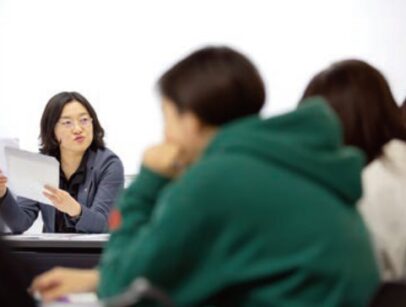
02. Plenty of opportunities for overseas language training and studying abroad
All second-year students participate in the "Overseas Language Training Program" and study in Korea. In addition, we send about 15 students to study abroad every year, mainly to partner schools in Korea. Through our partnership with Hankuk University of Foreign Studies, students can learn from native teachers on campus.
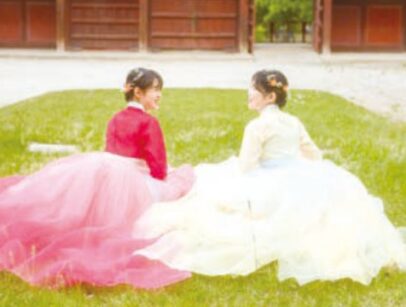
03. Enrollment models focusing on the future
Students can take courses that match the career path they wish to pursue, such as teaching Korean at high schools, teaching Japanese, or working in the tourism industry. Students can study while keeping in mind their future vision of using their Korean language skills to play an active role in society.
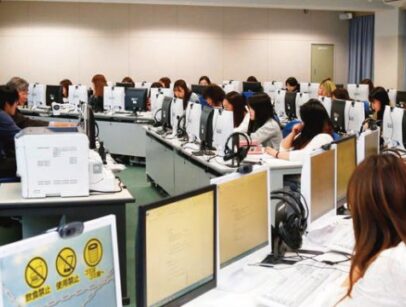
Enrollment models and qualification models to make the most of your learning for the future
"Tourism industry" enrollment model
This enrollment model is designed for those who want to work in the tourism industry, such as travel agencies, hotels, and airlines.
- Future vision: Travel agent, hotel staff
"Teaching" qualification model (Korean)
Students aim to obtain a First Class High School Teaching License (Korean)
- Future vision: Korean language teacher at high school
"Japanese language teacher" qualification model
Students aim to become Japanese language teachers who teach Japanese both domestically and internationally to non-native speakers of Japanese.
- Future vision: Japanese language teacher
"International contribution" enrollment model
An enrollment model for those who want to work in NPOs, NGOs, and other international cooperation-related fields.
- Future vision: Staff of international cooperation organizations and NPOs
Four-year learning process
First-year
続きを読むSolidify the foundation of the Korean language
Through beginner level study, students will build a solid foundation in the Korean language while also acquiring basic knowledge about Korean studies.
Representative Classes
 ・Introduction to Korean Studies
・Introduction to Korean Studies
Students will learn about the geography, history, politics, diplomacy, economy, society, and lifestyle and culture of South Korea and North Korea and acquire the ability to understand different cultures and one's own culture relatively and objectively through comparison and contrast with Japan.
Second-year
続きを読むImprove language operational skills and expand knowledge
Through intermediate level study, students will improve their Korean language skills while broadening their range of specialized knowledge on Korean studies. In the summer, students will participate in a three-week overseas language training program.
Representative Classes
 ・Korean Language Overseas Seminar
・Korean Language Overseas Seminar
Students will study Korean at a language institute and also visit places where they can come in direct contact with the history and culture to learn about the historical sites as well as the contemporary parts of South Korea. Also, students will deepen their friendship through exchanges with local students.
Third-year
続きを読むImprove language skills to a practical level and deepen knowledge
Students will study Korean at an advanced level and take seminars divided into fields to deepen their expertise in Korean studies. Many students also go on study abroad programs.
Representative Classes
 ・Korean Language Seminar 1, 2
・Korean Language Seminar 1, 2
Students will be divided into individual seminars, where they will read literature materials, learn methods for collecting, organizing, and analyzing literature, and conduct research on existing research and analyze literature on the theme they have set for themselves.
Fourth-year
続きを読むWork on a graduation thesis as the culmination of your studies
【Examples of graduation thesis themes】
- On Conjunctive Endings Expressing "Concession" in Modern Korean
現代韓国語の「譲歩」を表す接続語尾について - On Request Sentences in Korean and Japanese
韓国語と日本語の行為要求文について - Stories of Stepchild Abuse in South Korea
韓国における継子いじめ譚について - Surrendered Japanese Soldiers and Their Descendants During the Imjin War
壬辰戦争における降倭とその子孫 - Japanese Residents in Korea from 1876 to 1910 —Focusing on the Busan Settlement—
1876~1910年における在朝日本人 —釜山居留民を中心に—
- On Conjunctive Endings Expressing "Concession" in Modern Korean
Employment Results and Qualifications
90.4%
※ Actual employment results for the Department of Korean Studies, Faculty of International Studies in March 2025
Major employers (information for the most recent 5 years)
Tokuyama Co., Ltd., Kyodo Seihan Printing Co., Ltd., Seikousha Co., Ltd., Hosiden Corporation, BuySell Technologies Co., Tonami Holdings Co., Ltd., Sakai Moving Service Co., Ltd., Kansai International Airport Service Co., Ltd., Isuzu Motors Kinki Co., Ltd., Hit Union Co., Ltd., YaMaYa Corporation, NEXTAGE Co., Ltd., Arcland Sakamoto Co., Ltd., Honda Net Keina, bloom hearing Co., Ltd., POLA Inc., Osaka Shinkin Bank, Nara Shinkin Bank, Hyogo Shinkin Bank, Nippon Life Insurance Company, Tully's Coffee Japan Co., Ltd., Hotel Granvia (West Japan Railway Hotel Development Ltd.), APA Hotels & Resorts, Hoshino Resorts INc., TBD Group Co., Ltd., Bennesse Style Care Co., Ltd., Human Academy Co., Ltd., FJUT Plus Co., Ltd., Police Department (Osaka Prefecture, Hyogo Prefecture), etc. (listed in no particular order)
Available Qualifications
- First Class High School Teaching License (Korean)
- Qualification for appointment as a social welfare administrator
- Librarian
- Museum curator
- Japanese language teacher
- Corrections and Rehabilitation
- Missionary of the Tenrikyo church
Faculty list
Curriculum
Curriculum tree(PDF)
Curriculum map(PDF)
Education Policy
Admission Policy
In order to fulfill the educational goals of the Department of Korean Studies, we seek for students with the following qualities:
1. (International awareness) Those who have an interest in “international awareness,” which is Tenri University’s educational policy.
2. (Knowledge of South and North Korea) Those who are interested in the Korean language, culture, literature, history, community, customs, etc.
3. (Pursuing studies in the Korean language) Those who have an interest in the field of language, literature, history, social culture, and language education.
4. (Communication skills) Those who have an interest in communicating in Korean.
5. (Language proficiency for work) Those who would like to work actively using the Korean language.
6. (Contribution in and out of Japan) Those who would like to be a bridge between Japan and overseas countries through the use of the Korean language.
7. (Motivation) Those who have had experience in actively engaging in social activities and extra-curricular activities and are interested in the Korean language.Entrance examination methods will take various forms, such as comprehensive selection, special selection, school recommended selection, general selection, and transfer selection.
Curriculum Policy
We systematically distribute classes so that by acquiring proficiency skills in the Korean language, taking that as the base, students can pursue a highly specialized study in the fields of language, literature, history, social culture, language education, etc.
We provide subjects progressively so that first year students study at the introductory level, second year students at the basic level, and third year students at the application level to acquire skills in Korean communication, reading and writing, information gathering and analyzing. Further, during the third and fourth year, the curriculum is organized so that students can take seminars that cover the overall studies, which will prepare them for the graduation research project and to write their graduation thesis.
Also, for the purpose of improving language skills, and to experience life abroad, students are required to participate in a three-week language training program in South Korea during their second year.Diploma Policy
A bachelor’s degree (Korean Studies) will be awarded to students who have acquired the following knowledge and abilities:
1. (International awareness) Those who have acquired “international awareness,” which is Tenri University’s educational policy.
2. (Knowledge) Those who acquire the information gathering skills and knowledge regarding the Korean language, culture, literature, history, community, customs, etc.
3. (Pursuing studies in the Korean language) Those who are able to use their Korean language as a base to pursue highly specialized studies in the field of language, literature, history, social culture, and language education.
4. (Communication skills) Those who are able understand different cultures, and to communicate in Korean.
5. (Language proficiency for work) Those who are able to work actively in any field using the Korean language.
6. (Contribution in and out of Japan) Those who can utilize their high command of Korean to become a bridge between Japan and overseas countries and contribute to the local community and various groups both domestically and internationally.

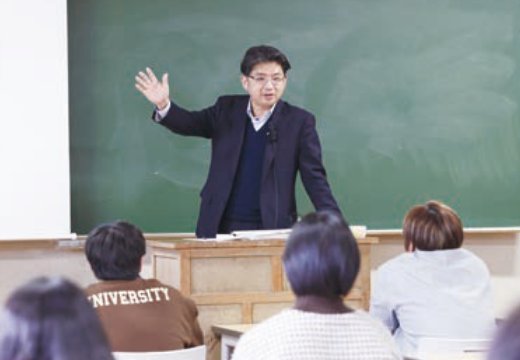 ・Introduction to Korean Studies
・Introduction to Korean Studies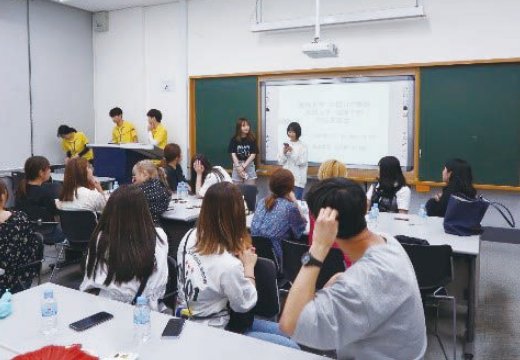 ・Korean Language Overseas Seminar
・Korean Language Overseas Seminar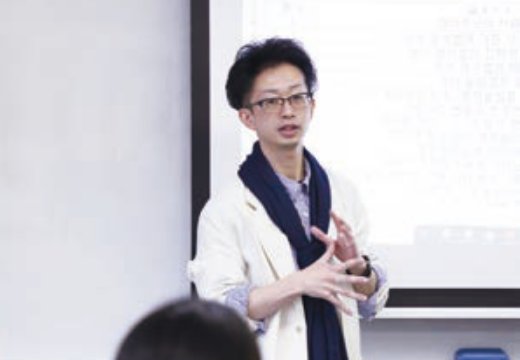 ・Korean Language Seminar 1, 2
・Korean Language Seminar 1, 2